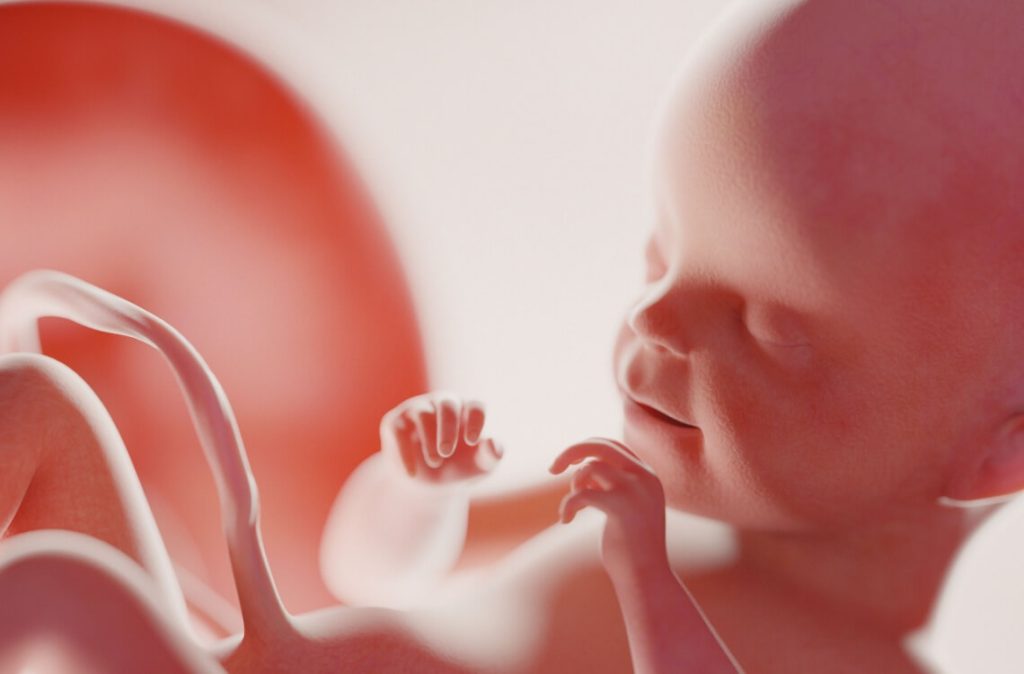You’re 21 weeks pregnant now, mummies!
You’re past the halfway mark, and your baby is rapidly growing while your body continues to adapt in remarkable ways.
This week is filled with exciting developments for both you and your baby as you prepare for the weeks ahead.
Here’s what’s happening with you and your baby.
Your Baby at 21 Weeks of Pregnancy
Your baby is now about 26.5–27 centimetres long and weighs roughly 360 grams—about the size of a carrot.
At this stage, you might feel those first fluttery movements, often described as ‘quickening’, though your partner may have to wait a bit longer to feel them.
This is what’s going on with your baby at 21 weeks of pregnancy:
- Movements: Although your baby kicks only several times an hour, their movements might feel random due to the room they still have in your uterus. These kicks will become more regular and stronger as they grow.
- Senses: Your baby’s hearing has developed enough to detect muffled sounds from both inside your body and the outside world. By birth, they may even recognise your voice and familiar tunes.
- Amniotic fluid: Although nutrition comes from the placenta, swallowing amniotic fluid helps their digestive system develop. Any sugars in the fluid can be processed by their maturing intestines.
- Physical changes: Eyebrows and eyelashes are fully formed, fingernails are growing (though still soft), and your baby is now covered in vernix caseosa, a white, waxy substance that protects their skin.
- Blood cell production: While the liver and spleen have been producing blood cells up until now, the bone marrow is starting to take over.
As your baby’s senses and systems mature, they’re becoming increasingly aware of your daily rhythms, like when you eat and sleep.
These connections are a beautiful reminder of how your lives are already intertwined.
Your Body at 21 Weeks of Pregnancy
At this point in pregnancy, your body is changing visibly and internally to accommodate your growing baby.
You might notice new skin changes, sensations, and even cravings, all part of this remarkable journey.
- Linea nigra: A dark line may appear running from your belly button to your pubic area, caused by increased pigmentation. This is entirely normal and usually fades after birth.
- Dry, itchy skin: As your skin stretches, particularly over your bump, it may become dry and itchy. Applying a moisturiser can help keep it soft and comfortable.
- Increased sweating: Extra blood flow to your skin can make you feel hotter than usual, and sweat rashes may develop in areas like under your breasts or groin. Keep these areas dry to avoid discomfort.
- Pregnancy cravings: It’s okay to indulge in cravings occasionally, but try to replace high-calorie treats with healthier options when possible.
If your skin feels irritated or overly dry, avoid harsh soaps and opt for gentle, hydrating products.
Your body is working hard to support your baby, so take care of yourself by staying hydrated, eating nourishing foods, and listening to your body’s signals.
Planning Your Maternity Leave
Now that you are 20 weeks pregnant, it’s a good time to start planning your maternity leave.
At this point, you may not even be able to physically go to work just from how much weight you’re gaining.
In Malaysia, you’re entitled to take up to 98 days of maternity leave. You can start your leave as early as 30 days before your due date if you want.
By law, your job must be held for your return, or a similar position offered.
If you feel discriminated against, you have the right to take legal action.
Know your rights, mummies, and don’t let your company take advantage of you.
But ideally, you should already be aware of your company’s maternity leave policy before signing the contract.
Risks to Be Aware Of
Pregnancy at its core is a high-risk condition.
No matter how careful you are, there may still be some hiccups along the way.
So, it’s important to pay attention to even the tiniest hint of danger. Symptoms that seem strange to you, unknown aches and pains, these are alarm bells telling you to quickly alert your healthcare provider.
While you’re past the most critical period for miscarriage, other risks remain.
Here are some of the things you should be aware of in your 21st week of pregnancy:
- Vaginitis: Common symptoms include itching, irritation, and unusual discharge. Bacterial vaginosis is particularly prevalent during pregnancy and should be treated promptly.
- Excessive weight gain: Gaining too much weight can increase the likelihood of complications such as gestational diabetes, high blood pressure, and difficulties during delivery. Don’t give in to those pregnancy cravings too much.
- Blood clots: Be on the lookout for signs of deep vein thrombosis (DVT), such as swelling, pain, and redness in your legs. Seek medical advice immediately if you notice these symptoms.
Looking Ahead
Week 21 is a time of growth and connection.
Your baby is developing rapidly, and their movements offer a reassuring reminder of the life growing inside you.
Meanwhile, your body is adjusting beautifully, even if it brings the occasional aches and pains.
By caring for yourself and staying informed, you’re preparing for the exciting weeks ahead.
Stay healthy, mummies!
References
- Curtis, G. B., & Schuler, J. (2016). Your Pregnancy Week by Week (8th ed.). Hachette Books.
- Kaye, P. (2021). Your Pregnancy: Week by Week. SPCK Publishing.
- Riley, L. (2006). You and Your Pregnancy: Your Ultimate Week-by-Week Pregnancy Guide. Meredith Books.
- Shanahan, M. K. (2002). Your Over-35 Week-by-Week Pregnancy Guide. Da Capo Press
Disclaimer: The information provided in this article is for informational purposes only and should not be considered as medical advice from Motherhood. For any health-related concerns, it is advisable to consult with a qualified healthcare professional or medical practitioner.
For more insightful stories and fun recipes, stay tuned to Motherhood Story!
